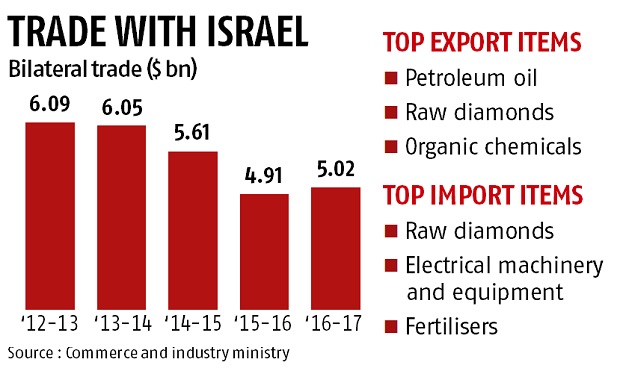7667766266
enquiry@shankarias.in
Click here for Part I.
Why in news?
Indian PM recently completed his 3 days visit to Israel.
What is the significance of the visit?

Why Israel is interested?
What should be done?
Source: Business Line